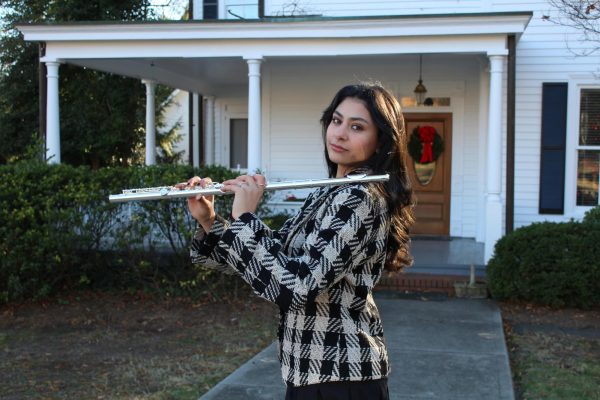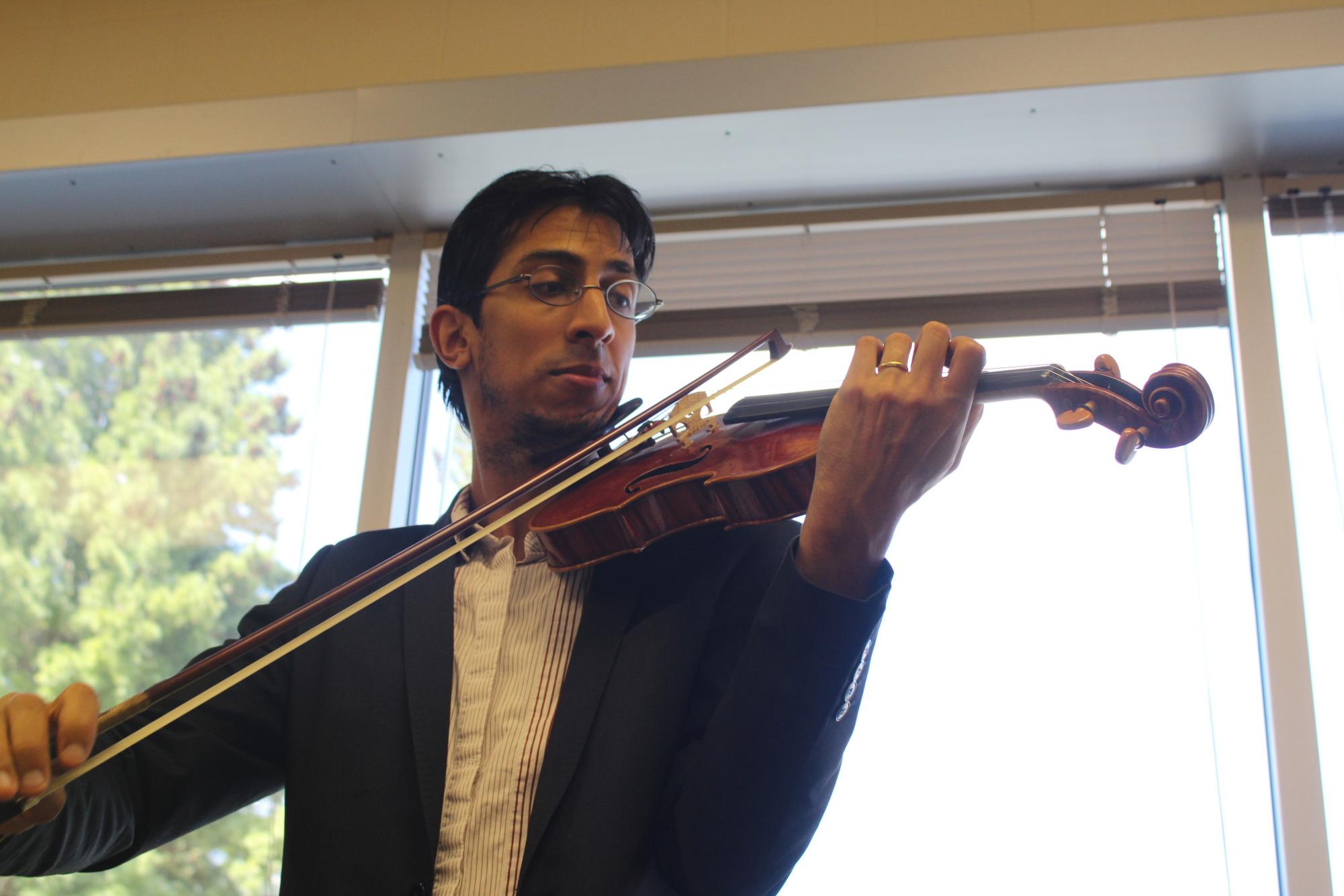Playing the violin was, at first, something Pedro Maia considered because of his grandfather, a self-taught musician from a small town of less than 4,000 people in Brazil.
Maia was born and raised in Brasília, Brazil, where he attended a “pretty rigid” conservatory of music and studied both the violin and baroque recorder. After graduation, it was not just music that called to him; the idea of playing music and traveling captured his attention. Driven by this dream, Maia made the move to the United States, despite not speaking any English.
After being briefly lost in an airport and navigating the language barrier, Maia found his place among a large and diverse international student community at the University of Southern Mississippi.
“We did everything together, whether it was grocery shopping, learning English or playing soccer, we became a family,” he said.
The violinist stayed in the U.S. and went on to earn his doctorate in violin performance from Florida State University.
“You know, after being here for so many years, it’s strange,” Maia said. “I was home for a long time, but I have also been here for a long time, so it feels like I have two homes, but none at the same time.”
Having performed across Asia, Europe, South America and North America, Maia brings a wealth of global experience into his new role as an assistant professor at App State. After arriving in Boone this semester, he’s already had people reach out expressing interest for collaborations and discussions on Brazilian rhythms.
“I want to help bring diversity into the classical world, there are so many composers that are put to the side because they are not part of classical repertoire,” Maia said.
For Anabella Carter, a junior music performance major and the Appalachian Symphony Orchestra’s principal flutist, embracing jazz and improvisation is a cultural connection she’s eager to explore. Carter is Puerto Rican, and while she describes herself as a “classical girl” with a love for romantic era music, she’s determined to play more works composed by Hispanic and Latino artists.

passion for music is something that keeps her grounded. (Courtesy of Anabella Carter)
Touching a tiny gold flute necklace gifted by her grandpa, Carter said her family and support system help give her strength.
“When I’m performing it’s never just me, it’s a whole group of people behind me,” Carter said. “It’s my parents, it’s my instructors, it’s my friends. It’s never just me up there.”
Music students may face busy schedules, dedicating countless hours a day to practicing their craft. Acknowledging the toll this dedication can take on mental health, Carter launched an Instagram account to support fellow artists. For her, staying grounded in her passion for music is part of what keeps her focused and inspired.
“With music, to be able to leave this world and go somewhere else and bring people with you is everything, it’s the closest thing we have to magic,” Carter said.
To honor National Hispanic Heritage Month, the Hayes School of Music has hosted a free concert series since 2021 to celebrate the culture of Hispanic and Latino Americans.
The program features a medley of musical performances and poetry from the Department of English. This year, Melissa Lesbines, who oversees the multi-department collaboration, has expanded the event to include the Department of Languages, Literatures and Cultures for the first time.
“Our commitment has been to celebrate the rich musical arts of Spanish-speaking people through faculty performances and poetry readings,” Lesbines said. “Each concert brings a great variety of styles to the concert stage for student and community enjoyment.”
Chair and professor in the Department of English Leonardo Flores said the program highlights some of the cultural contributions the Hispanic and Latino communities have made to the U.S.
“There’s been a historic connection of these cultures from the very beginning of this nation, a sort of interwoven kind of fabric,” Flores said. “Congress recognizes this and creates things like Black History Month, Women’s History Month and Hispanic History Month to draw attention to the many contributions these historically underrepresented groups have made in culture and society.”
During the concert, Flores will read in translation the poem “Río Grande de Loíza” by Julia de Burgos, a famous Puerto Rican poet, which speaks to the “complex relationship between Puerto Rico and the U.S.,” Flores said.
For thousands of years, poetry has played with rhythm and lyricism and intertwined with music to create a “dynamic, ongoing relationship,” according to the Poetry Foundation.
Taking center stage in September, App State’s artistic voices will unite, blending music and language to create a shared space for celebrating and learning about Hispanic and Latino cultures.
“With the collaboration, we all have our connections to Latin culture to these contributions. Instead of each of us doing it in our own spaces, we are coming together,” Flores said.
Maia said art connects us, something he explained with a story about performing with people without speaking the same language, saying, “Together you just play, and you smile.”
Para leer en español haz clic aquí.


